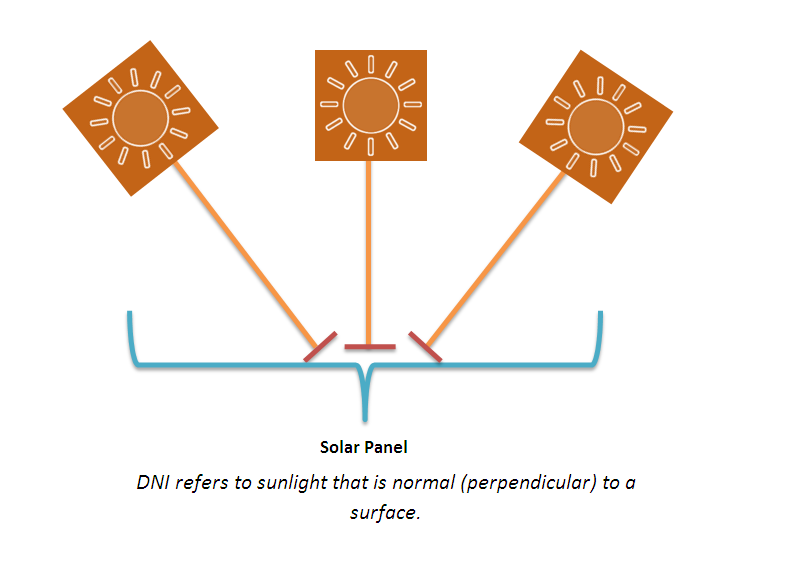Did you know that Direct Normal Irradiance (DNI) is one of the most important factors for successful solar power generation? What is DNI, and why is it so important for solar power generation?
Sweet Answer from Solar Mango: (updated Jul 2015)
DNI is a measure of sunlight availability at a location.
DNI (Direct Normal Irradiance) at a location is the amount of solar energy falling per sq.m per day at that location.
(Image credit: Suncyclopedia)
The DNI for a sunny region is approximately 6 kWh/m2/day. This is the amount of sunlight energy falling on a square meter every day in a good location.
The higher the DNI, the higher the electricity produced by a solar cell.
As you would have guessed, some regions have much higher DNI than many others. Northern portions of Africa, large portions of USA and Australia, Central America and South America, Middle East, southern parts of China and India get good solar DNI, while some not-so-lucky regions, say parts of Alaska could have DNIs of less than 3 kWh/m2/day (less than half that for sunny regions).
What does the solar DNI depend on?
The solar radiation that reaches on different locations of earth depends on several factors such as geographic location, time, season, local landscape, local weather etc. The Earth rotates around the sun in an elliptical orbit and is closer to the sun during part of the year. When the sun is nearer the Earth, the Earth’s surface receives a little more solar energy. This can cause increases in the DNI.
When sunlight passes through the atmosphere, it is subjected to absorption, scattering and reflection by air molecules, water vapor, clouds, dust, pollutants, forest fires etc. These can also affect the DNI in a particular region.
Related Articles
Ask Solar Mango
Have a solar energy related question to be answered at Solar Mango? Send it to ask@solarmango.com

 Skip to content
Skip to content
